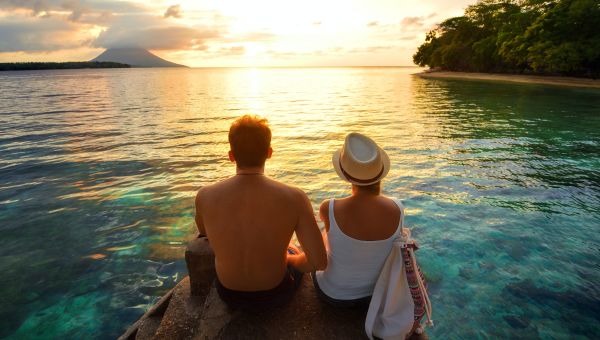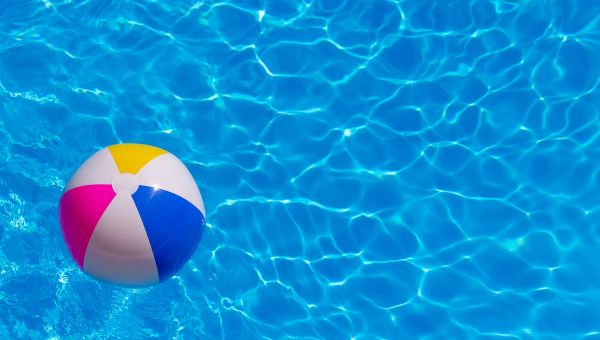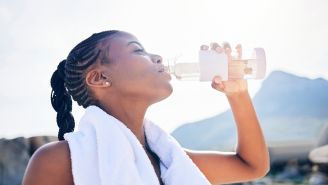5 strange summer myths, debunked
Understand the facts about bugs, pools, bears, and other seasonal hazards to help stay safe this summer.
Updated on June 6, 2024

For many people, summertime means sunshine and time spent with family and friends. But the warm weather can also bring burns, bites, germs, and a lot of misinformation about how to treat them.
Khushbu Patel, DO, a doctor of family medicine in Leawood, Kansas, debunks some of the most common—and downright strange—summer health myths, providing the facts to keep your season safe.

Myth: It’s okay to swallow pool water
Fact: Just one gulp may contain fecal particles, along with germs like cryptosporidium, and could give you a nasty case of diarrhea.
Between 2000 and 2014, there were 493 documented outbreaks of disease in treated recreational pools and spas in 46 states and Puerto Rico, resulting in 27,219 illnesses and eight deaths, according to a 2018 report released by the Centers for Disease Control and Prevention (CDC). Presumably, all of the outbreaks were linked to waterborne germs, but 363 were conclusively caused by Cryptosporidium, Legionella, and Pseudomonas. Hotels were the leading sites, associated around one-third of the total outbreaks.
About 58 percent, or 212 outbreaks, were linked to Cryptosporidium, or "crypto," and cases don't seem to be slowing down. They're still on the rise in the U.S., with infections linked to public pools and water playgrounds doubling from 2014 to 2016 (32 outbreaks), according to the CDC. Cryptosporidium is a parasite that causes severe diarrhea, nausea, vomiting, and dehydration—that lasts up to three weeks. It may survive for days even in clean, chlorinated pools.
“The most common way of spreading these organisms is through fecal accidents by diapered and/or toddler aged children, or by shedding fecal particles from swimmers’ bodies,” explains Dr. Patel.
Keep germs out of the pool this summer by:
- Avoiding the water if you have diarrhea. Don’t swim for at least two weeks if you have a known or suspected case of crypto.
- Taking children to the bathroom and checking diapers hourly. Also, change diapers in the bathroom, not poolside.
- Washing your hands after using the restroom and showering before swimming.
And, of course, don’t swallow the water.

Myth: Chlorine eliminates urine from the pool
Fact: Commercial pools may contain up to 20 gallons of urine.
Researchers also estimate that the typical backyard pool contains about 2 gallons of urine, as well. To measure the amount, scientists from the University of Alberta recorded the quantity of a common artificial sweetener, Ace-K (acesulfame potassium) in 31 pools in two cities. Ace-K is found in many foods, and most of it leaves the body through urine, making it a good proxy for measuring urine.
Before you take a tinkle during family swim, know your pee won’t just disappear, and it’s not totally harmless. When pool water mixes with urine, it creates a pungent chlorine smell, which can make breathing difficult for people with asthma and other respiratory conditions. It also produces chemical byproducts that, in large quantities, are potentially harmful.

Myth: Eating garlic repels mosquitoes
Fact: “Garlic consumption has not shown any difference in the occurrence of mosquito bites,” says Patel.
The CDC recommends wearing bug repellent when outdoors, preferably one that contains picaridin, IR3535, DEET, or lemon/eucalyptus oil. Other proven ways to avoid bites:
- Stay indoors peak times for mosquito activity, typically dusk and dawn.
- Wear long sleeves, pants and socks outdoors when possible and spray repellent onto clothes.
- Remove standing water like kiddie pools and birdbaths near your home.

Myth: Peeing on a jellyfish sting will ease the pain
Fact: “Remedies such as human urine, pressure bandages, alcohol, and gasoline have not proven to be helpful in treating jellyfish stings,” says Patel.
You shouldn't scrape, rub or apply sand to the wound, either. Instead, Patel recommends that you:
- Rinse the area with vinegar for 30 seconds to deactivate the stingers. A mix of baking soda and seawater works, too. If you don’t have either, just use seawater.
- Afterwards, a hot bath, calamine lotion, or cortisone cream can help relieve itching or pain.
Call 911 immediately if someone experiences chest pain, shortness of breath, difficulty swallowing, excessive sweating, fainting, or an abnormal pulse after being stung.

Myth: Bears are drawn to women on their period
Fact: Studies have not found this link to be true, but you should take some precautions if camping while menstruating.
Studies cited by the National Park Service have shown that grizzly and black bears—the two most common bears found in the U.S.—are not more attracted to menstrual blood than other human odors or bodily fluids, says Patel.
However, the National Park Service still recommends:
- Avoiding scented feminine products, deodorants, and perfumes when camping.
- Do not bury pads or tampons. Instead, store them in double zip-tight bags, out of reach of bears, such as in a tree or in the car until you can permanently dispose of them.
- Clean yourself with pre-moistened, unscented towelettes and discard them with pads and tampons.
More On


video

article

slideshow


video


video
